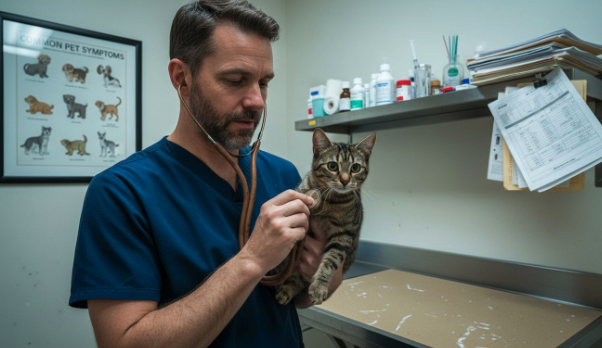Effective Advocacy for Animal Protection Legislation: A Guide to Driving Change
Animal care legislation can be an effective means of protecting animals and ensuring they receive the appropriate care and respect. However, meaningful change requires strategic planning, thorough research, and relentless advocacy. It does not matter if you are part of a welfare organization or an individual who cares about animal rights; advocating for new laws or modifying the existing ones requires knowing the right approach.
This blog post will focus on the importance of animal care legislation and discuss advocacy for stronger laws, informed by personal experiences and insights from global advocacy efforts.
The Importance Of The Law In Animal Protection
In a given time, legislation captures the ethical agreement of society. While laws cannot be too ahead of public opinion, they can establish a significant shift in raising standards, ethical benchmarks, and protection against cruelty. Strong animal protection laws can:
- Ban cruel practices (e.g., fur farming, trophy hunting).
- Prevent harmful exploitation of animals through outraging production methods.
- Advance animal welfare by establishing minimum acceptable standards for housing, feeding, and veterinary care.
- Prevent and reduce pain and suffering inflicted through cruel abuse by imposing strict penalties.
- Enforce laws against illegal poaching and habitat destruction for the protection of ecosystems and wildlife.
Animal advocates often struggle to enact laws that defend wildlife, as there are many factors including financial gain that will go against ethics. But with the right strategy, change can be made.
The Key Steps to Advocating for Animal Protection Laws
1. Define Your Objective
What do you want to achieve? Do you wish to eliminate the use of animals in circuses or do you want to establish Animal Welfare standards that are more comprehensive? Strategy and legislative approach are streamlined with a defined objective.
2. Research and Gather Evidence
Responsible legislation must comprise of facts and evidence, so gather as much data as possible. Research national animal protection laws and compare internationally to find loopholes. Many successful campaigns have case studies from regions where the proposed laws were successfully implemented.
Take, for instance, the comprehensive animal welfare legislation of the European Union. It serves as a model for countries aspiring to improve their animal protection standards. Other nations have also been able to reference laws advocated for fur farming or live animal exports.
3. Mobilize Public Advocacy
Public sentiments can greatly dictate policies. The momentum needed for the desired change can be gained through an organized public campaign. At this stage, try to accomplish the following using media, petitions, and social platforms:
Make the target audience informed about the problem.
- Evocative storytelling and visuals help share compelling narratives that resonate emotionally with audiences.
- With the help of media, showcase the positive impact of similar legislation in other countries.
- Engage influencers, celebrities, and key public figures who can speak on your behalf and ensure that your message reaches a wider audience.
As a note, the public’s opinion shapes the core of legislative frameworks aimed at protecting animals. Unfortunately, even the best legislative intents will remain unimplemented in the absence of support from the public.
4. Influence Important Policy Makers
After consolidating public backing, focus on the relevant authorities. Lobbying is crucial in the initiation, alteration, or enhancement of laws. Consider the following steps:
- Engage with sympathetic government stakeholders like parliament members, and ministers responsible for animal welfare policies.
- Defend your case at the policy maker’s office. Present them with compelling evidence, drafts of the proposed legislation, and demonstration of public support through opinion polls, petitions, or surveys.
- Appeal to ethics and consider the economic advantages, such as eco-tourism or sustainable farming activities, as well as public health issues associated with animal welfare.
5. Form Alliances
One of the strongest strategies for advocacy is building coalitions. Your campaign can have greater impact and reach if you partner with other animal welfare organizations, environmental groups, and legal professionals.
Notable international organizations like World Animal Protection and Humane Society International have helped local animal groups by providing expertise and resources to lobby for stronger animal protection laws.
- Effective Use of Legislation to Protect Animals
- Different methods can be used to advocate for legislation:
- Create new laws, such as banning the operation of puppy mills, the use of animals in circuses, and fur farming.
- Enhance existing laws by identifying the flaws in current legislation, such as the presence of loopholes that permit the abuse of animals. Advocate for better provisions and enforcement in the amendments.
- Advocacy can be directed towards enforcement of laws to ensure compliance: Sometimes there is an absence of legislation that governs an issue, but sometimes it is due to negligence. Stricter enforcement of existing laws can be advocated, since violators at times go unpunished.
Encouraging Amazonian Wildlife Conservation Laws
After public support is gathered through research, advocacy goals are then defined, targeted, and customized strategies are devised. These strategies can be:
- Petitions accompanied by public demonstrations: advocate for the cause more efficiently by public demonstrations or awareness marches. Public support can also be reflected through petitioning animal welfare issues.
- Meet Legislators and Key Decision Makers: Convince legislators by requesting meetings to discuss policy amendments while presenting well-structured arguments that defend policy change.
- Turn animal welfare issues into the hot topic of discussion with the media so that pressing issues cannot be ignored. Outdated policies also need to be revamped to prompt the animal welfare authoritative figures into action.
Making Change Permanent
Legislation protecting animals is a reflection of society’s moral compass and serves as a tool to enforce the humane treatment of animals. Advocacy is central to this process, and although it often takes time to see results, it is attainable with the right approach. We are able to make a difference and gain advancements in animal protection legislation by working collaboratively, reaching out to the public, and focusing on critical influencers at the global level.
As a new pet parent, managing unexpected medical bills is important. Read this guide on The pros and cons of pet insurance to make an informed decision.
EXTRA:
> Are you curious about the benefits of cat ownership? Discover how a feline companion can boost your well-being, reduce stress, and add endless joy to your life in our latest blog post.












